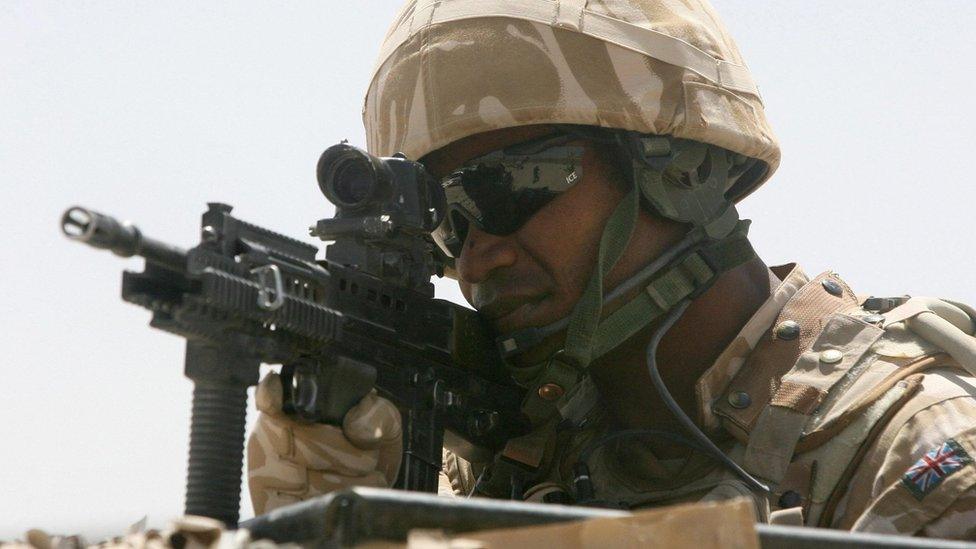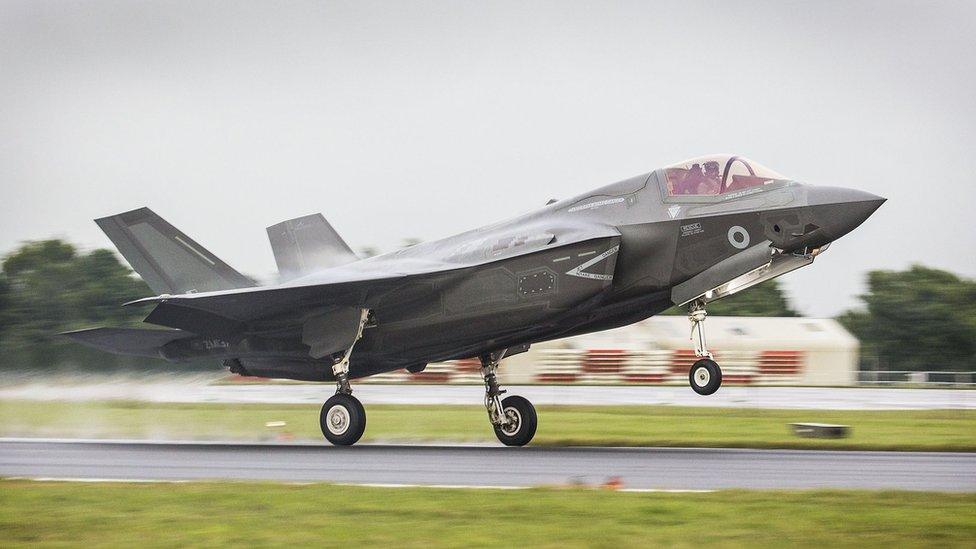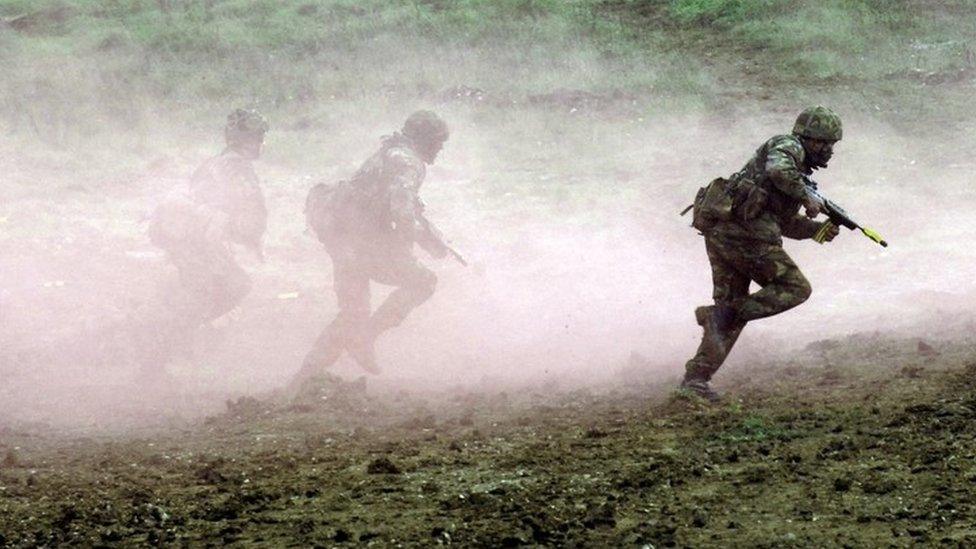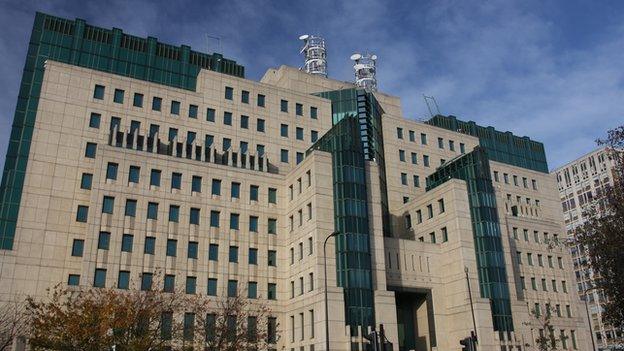Defence spending may drop after Brexit - parliamentary committee
- Published

Economic changes after the vote to leave the European Union could see the defence budget reduced in real terms, a committee of MPs and peers says.
The Joint Committee on the National Security Strategy says security review planning, conducted once or twice a decade, should begin "immediately".
And its report criticised ministers' failure to set out contingency plans for Brexit in the last security review.
It accused them of "putting political interests ahead of national security".
Last year's Strategic Defence and Security Review contained a commitment by the government, made for the rest of this decade, to meet the Nato target of spending 2% of GDP on defence.
This implied an annual real-terms increase of 0.5% above inflation in the Ministry of Defence budget, which would result in spending rising from £34.3bn in 2015-16 to £38.1bn in 2019-20.

The RAF recently received the first of 14 F-35B Lightning II stealth fighters, which will cost a total of about £2.5bn
According to the report, the Institute for Fiscal Studies has highlighted analysis that states the UK's GDP might be reduced by between 2.1% and 3.5% in 2019 as a result of Brexit.
After taking account of the reduced EU contribution, such a reduction would imply a hit to the public finances of between £20bn and £40bn in 2019-20, says the committee.
The report says: "In that context, even if the new government were again to commit to spending at least 2% of GDP on defence, a stagnant or contracting UK economy might mean that the defence budget would be significantly reduced in real terms."
The Committee suggests that Brexit "could impact on the aspirations and capabilities set out in the National Security Strategy".
It adds: "Economic contraction caused by Brexit could limit the ability of the armed forces to fulfil their role effectively.
"The Committee had expected the National Security Strategy (NSS) and Strategic Defence and Security Review 2015 (SDSR) to address what action would be required in the short term following a Brexit vote.
"The failure to outline a plan to address that contingency indicates the prioritisation of political interests above national security. If the National Security Strategy is to be credible, it must prioritise the maintenance of national security above political expediency."
'Inadequate' military forces
The report says the European Union is facing "significant security challenges", such as large-scale migration and an emerging domestic terrorist threat.
"These challenges also have implications for the UK, regardless of whether it is a member of the EU. A new security review must address how the UK will engage with these issues from outside the EU," it says.
The report goes on highlight how the government is commitment to maintaining the size of the regular army at 82,000, and to increase the Royal Navy and Royal Air Force by a total of 700 regular personnel.
But despite this, the committee says that "the manpower fielded by the UK armed forces is inadequate bearing in mind the range, complexity and potential concurrency of tasks expected of them".
In addition, planned reductions in MoD civilian staff could undermine the effective use of the state-of-the-art equipment to be purchased as a result of the NSS and SDSR 2015, the report adds.
- Published11 February 2014
- Published20 November 2015

- Published9 July 2015
